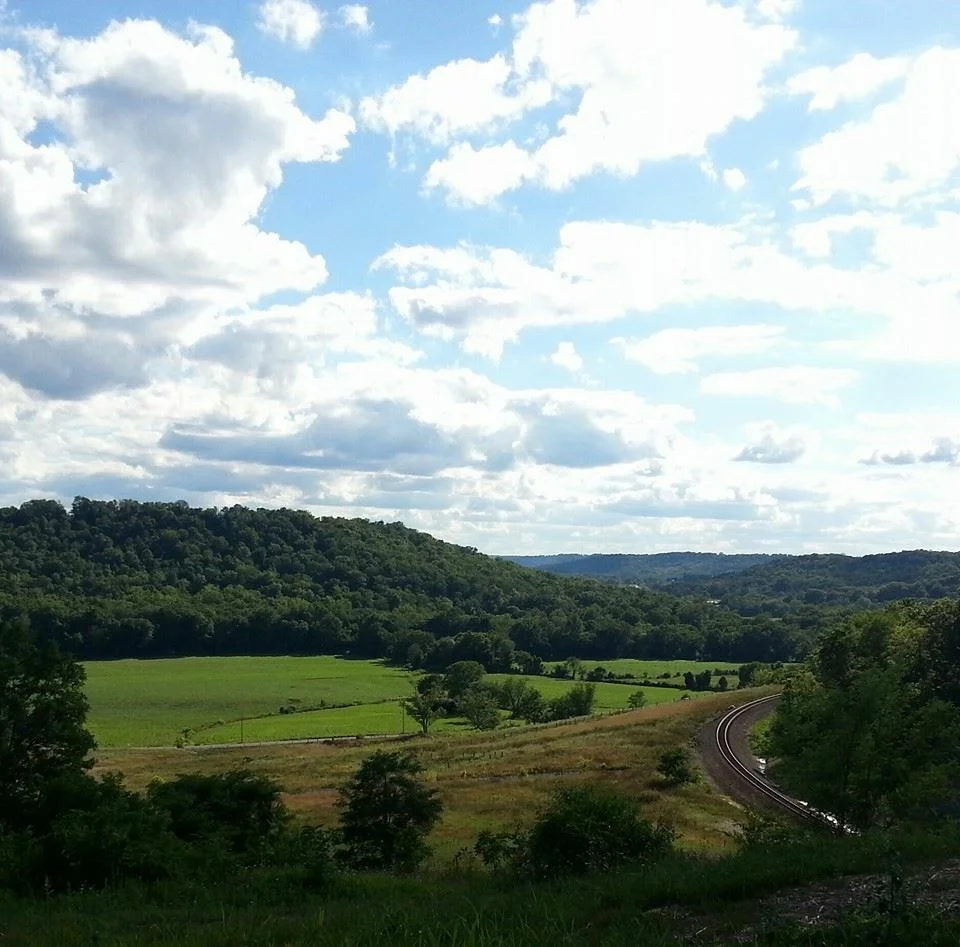This blog post was a response to an essay question, which I thought worth sharing with you all. I’ve included the question below:
In the documentary Look and See, Wendell says “You can see all the way to the stars almost any place you are. To live in a place and have your vision confined by it would be a mistake. But to live in a place and try to understand it as a standpoint from which to see, and to see it from there as far as you can, is a proper challenge, I think.” How can being rooted in a place, particularly an agricultural community, be a source of contentment and continuous interest? How is it a “proper” challenge?
My sister is a wanderer. Every week she has a new dream and a new place she’s going. I have never been that way. Heck, I’ve never even moved out of my parent’s house – so far. Farming is referred to as husbandry for a good reason. I am a married woman, and in a sense, have “confined myself” to my spouse. But how much better do I know that man because of it? We share secrets and moments that no one else will ever know or understand. Land, like people, changes over time and although the place may look the same, a loving eye will notice a few more grey hairs, or a new scrape on his hand. I have lived on this farm my whole life and it changes every year. There will always be something new, no matter how much it may appear to stay the same. A year ago my husband and I were thinking about finding a neighboring farm to purchase. I remember so clearly sitting in our old tobacco barn as the rays from a setting sun filtered in between cracked boards and I could see the dust swimming in the light and I knew that I had to stay. It is those moments of peace and near perfection that make farming more than a job. It is a sigh of content at the head of the trail or a few quiet moments watching a cardinal in the snow. That’s what makes this place home and what makes the hard days worthwhile. It is this collection of moments and peace that never grow old. I could live in them forever.
Even the neighboring farms have a history that is entwined with ours. When my family first moved here from Detroit we were slow to be accepted into the community. But one neighbor, Jake Noel, answered our questions, taught us how to call the cattle, and he even sold us our first three cows. His grandson bought the farm last year and we still work closely together putting each other’s cattle back in the right field, or fixing the dividing fence lines. Most folks have forgotten the worth of a good neighbor. The history of a place is more than just where your feet stand, it’s not only your history but the land next to yours. No farm would survive on its own. Your neighbor’s struggles and victories are in part your own. I think I would feel like an emigrant anywhere else, and often do feel quite out of place when I’ve worked or gone to school further north. In Glencoe no one chuckles when you say “going to town”, because they were probably “in town” for something the week before, and Grant County, though a fair distance, isn’t as far from Northern Kentucky University as everyone seems to think. Sometimes I think about the fact that I could travel the rest of my life and never see all of the amazing places there are. I could go to different countries and the rain-forest, or the desert but would I know any of them? And even after a life of travel there would still be places I hadn’t been. I wonder, would it bother me? Every place has a story, and they all deserve to be learned and loved. Those peaceful moments can be found other places, I’m sure, but I have shared a life with this one and I’ll never be able to divorce or replace her, grey hairs and all. Each place, or tree and field have a past and some of it is known to me. The thought that I might get to tell these stories, or explore this place with children of my own, gives me great hope for the world to come. If they can learn to love them and cherish them as I have we might just turn out alright.



